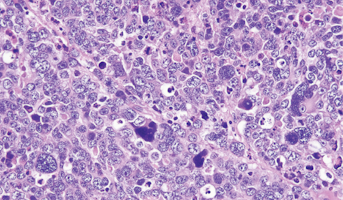Circular RNAs in Medulloblastoma
Email Principal Investigator

Peter George Zaphiropoulos
CBTN Specimen
CBTN Participants
Backer
Swedish Cancer Society
About this
Project
Medulloblastoma is the most common childhood cancer in the brain and despite recent advances in therapeutic outcomes, survival rates are reaching a plateau. To improve survival outcomes, a greater understanding of the biology and progression of medulloblastoma is greatly needed. Recent research has found that newly identified RNA molecules, circular RNAs, play a role in an increasing number of cancers such as hepatocellular carcinoma, prostate and breast cancer. Researchers hypothesize that circular RNAs will also have a functional role in medulloblastoma and may even be used as biomarkers and therapeutic targets. The goals of this project are to identify the circular RNA present in medulloblastoma tumors of the sonic hedgehog (SHH) subgroup and compare it with that of normal cerebellum and to generate RNAseq data. This project will generate the largest open-access dataset of circular RNAs in SHH medulloblastoma. The Children's Brain Tumor Network contributed to this project by providing tumor RNA samples from patients with SHH medulloblastomas.
Ask The
Scientists
What are the goals of this project?
The goal of this project is to identify the circular RNA present in medulloblastoma tumors of the sonic hedgehog (SHH) subgroup and to generate RNA sequencing data that can be used to further research.
What is the impact of this project?
This project will generate the largest open access data set of its kind, contributing to an acceleration in the discovery of new therapeutic targets for medulloblastoma.
Why is the CBTN request important to this project?
This project requires rare samples from a specific subset of tumors, SHH medulloblastomas, only available through a resource such at the Children’s Brain Tumor Network.
Specimen Data
The Children's Brain Tumor Network contributed to this project by providing tumor RNA samples.
Meet The



